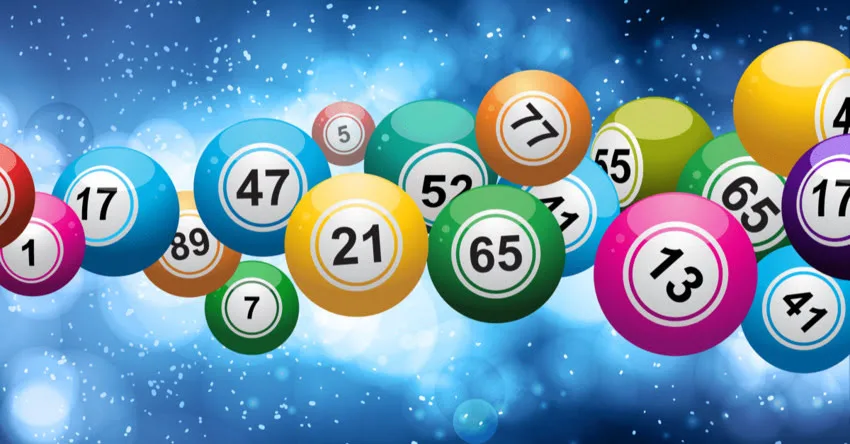Lotteries have long been a staple of gambling culture, offering players the chance to win life-changing sums with minimal investment. Over the years, they have evolved from traditional paper-based draws to sophisticated digital platforms, adapting to new technologies and player expectations. As the industry moves forward, emerging trends are reshaping how lotteries operate, promising more engaging, secure, and socially responsible gaming experiences.
The future of lotteries is driven by innovation, regulatory shifts, and changing consumer habits. From artificial intelligence (AI) to blockchain technology, the industry is leveraging cutting-edge advancements to enhance transparency and player trust. Moreover, the rise of the metaverse and digital assets is redefining the way lotteries are played. In this article, we will explore key trends shaping the future of lotteries and what players can expect in the coming years.
Digitisation of Lotteries: The Shift to Online Platforms
The transition from physical lottery tickets to online platforms has been one of the most significant transformations in the industry. Digitalisation has not only made lotteries more accessible but has also introduced innovative features such as instant draws, mobile applications, and personalised gaming experiences. Players can now participate in international lotteries without geographical restrictions, expanding the potential audience and prize pools.
One of the key drivers of this digital shift is the growing reliance on blockchain technology. Many lottery operators are integrating blockchain to enhance transparency, ensuring that every ticket and draw result is verifiable. Smart contracts also eliminate the need for intermediaries, allowing for fairer and more secure gameplay. This increased trust is attracting new players to the lottery market.
Additionally, the rise of mobile-first solutions has led to the creation of user-friendly lottery apps. These apps offer players the convenience of purchasing tickets, checking results, and managing their winnings from their smartphones. As mobile penetration continues to grow worldwide, the online lottery market is expected to expand even further.
Artificial Intelligence and Big Data in Lotteries
AI and Big Data are revolutionising the lottery industry by optimising operations, personalising player experiences, and improving security measures. AI-driven algorithms analyse vast amounts of data to detect patterns in player behaviour, allowing operators to tailor promotions, bonuses, and game recommendations to individual preferences.
Big Data is also enhancing fraud detection and responsible gaming initiatives. By monitoring transactions and gameplay habits, AI can identify potential cases of fraud or gambling addiction, prompting interventions to protect players. This proactive approach helps operators maintain compliance with regulatory requirements while ensuring a safer gaming environment.
Furthermore, AI is being used to generate randomised lottery numbers, eliminating any potential biases in traditional draw methods. With AI-driven security protocols and automated risk management, lottery platforms can provide a fairer and more transparent experience for all players.
Lotteries and the Metaverse: New Forms of Entertainment
The metaverse is emerging as a new frontier for online entertainment, and lotteries are beginning to explore opportunities within this virtual space. Digital assets, such as NFTs (non-fungible tokens), are being integrated into lottery systems, offering unique prizes beyond monetary rewards. Players may win exclusive digital collectibles, virtual real estate, or in-game assets.
Metaverse lotteries also introduce interactive and immersive gaming experiences. Players can participate in live draws, explore virtual lottery halls, and engage with other participants in a fully digital environment. This social aspect of gaming is expected to attract younger audiences who seek more engaging and community-driven experiences.
With decentralised platforms gaining popularity, blockchain-based lotteries in the metaverse are removing the need for traditional lottery operators. Smart contracts ensure transparency and fairness, while decentralised autonomous organisations (DAOs) allow players to vote on game rules and prize distributions.

Eco-Friendly and Charitable Lotteries
As sustainability becomes a global priority, the lottery industry is embracing eco-friendly initiatives. Many operators are transitioning to paperless ticketing systems, reducing their environmental footprint. Digital lotteries not only cut down on paper waste but also lower energy consumption associated with traditional draw operations.
Charitable lotteries are also gaining traction, with a growing number of games dedicated to supporting social causes. These lotteries allocate a portion of ticket sales to charitable organisations, funding healthcare, education, and disaster relief efforts. Players are increasingly drawn to these initiatives, as they offer an opportunity to contribute to meaningful causes while enjoying the excitement of the game.
In addition, green blockchain solutions are being explored to create energy-efficient lottery platforms. By leveraging sustainable blockchain networks, operators can maintain the benefits of decentralised gaming while minimising their environmental impact.
The Future of Jackpots: How Will Winnings Change?
Jackpots are at the heart of lottery excitement, and their structure is evolving to cater to modern player expectations. Progressive jackpots, which accumulate prize pools over time, are becoming increasingly popular. These jackpots create massive payouts that attract a larger player base and generate global interest.
Cryptocurrency-based jackpots are also on the rise, allowing winners to receive their prizes in Bitcoin, Ethereum, or other digital assets. This method offers faster payouts, enhanced security, and international accessibility. With the growing adoption of cryptocurrencies, blockchain-based lotteries are expected to gain a larger market share.
Additionally, new payout structures are emerging, where winnings are distributed among multiple players instead of a single jackpot winner. This approach increases the chances of winning and encourages more participation, making lotteries more inclusive and engaging.
Regulation and Security in Lottery Gaming
As online lotteries grow in popularity, regulatory frameworks are evolving to ensure player protection and industry integrity. Governments and gaming authorities are implementing stricter licensing requirements, anti-money laundering measures, and responsible gambling policies to safeguard participants.
Cybersecurity remains a top priority, with lottery platforms investing in advanced encryption technologies to prevent hacking and fraud. Multi-factor authentication, biometric verification, and blockchain-based record-keeping are becoming standard practices to enhance security.
Furthermore, international cooperation is increasing among regulatory bodies to address cross-border lottery operations. As lotteries become more interconnected, ensuring compliance with multiple jurisdictions is essential for maintaining trust and legitimacy in the industry.
